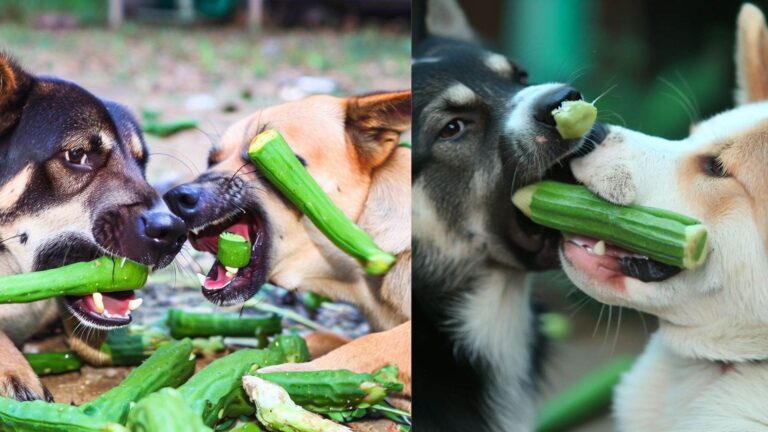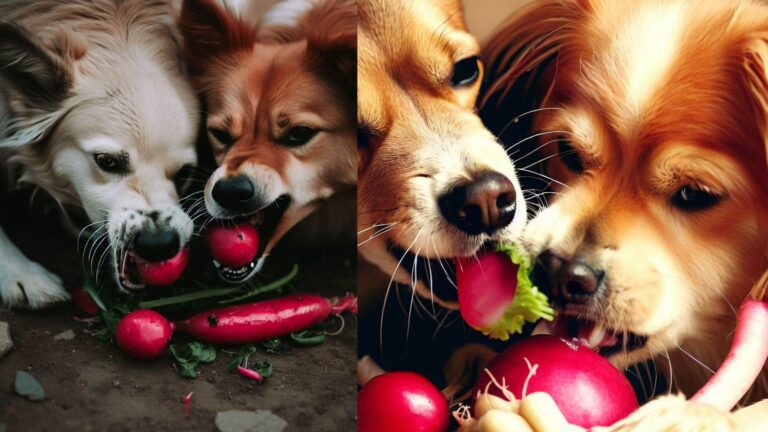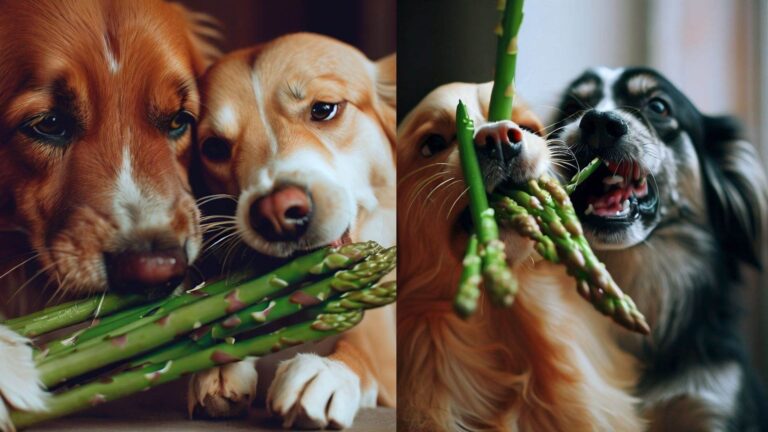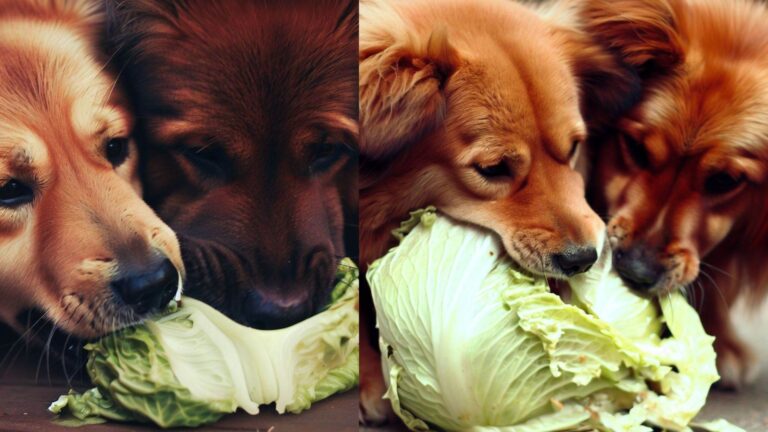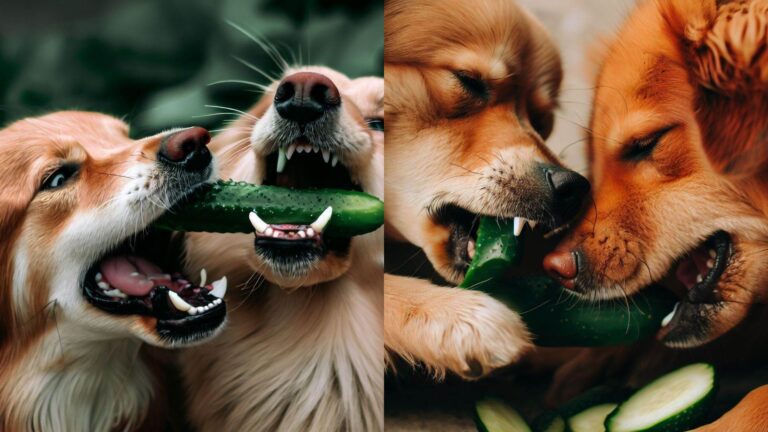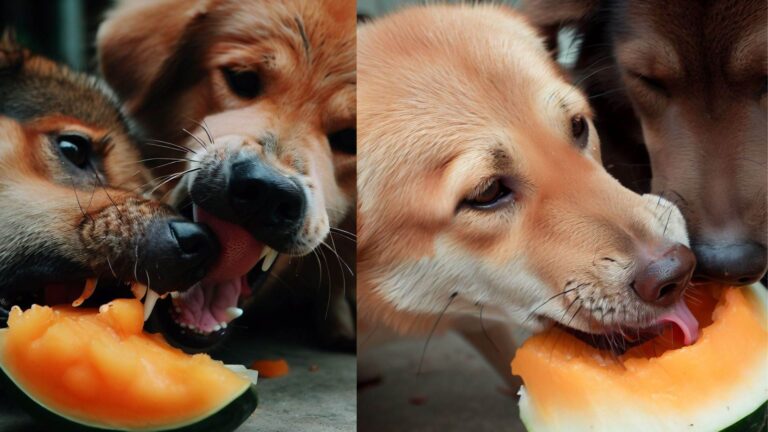Squash is a nutrient-rich vegetable that is widely used in various cuisines around the world. It is low in calories and high in vitamins, minerals, and fiber, making it a healthy addition to any diet. However, as a pet owner, you may wonder whether it is safe for your furry friend to eat squash. In this blog post, we will explore the benefits and risks of feeding squash to dogs.
Table of Contents
Can Dogs Eat Squash?
Yes, dogs can eat squash in moderation. Squash is a safe and healthy vegetable for dogs as long as it is prepared properly and fed in moderation. Squash is low in calories and high in nutrients, including vitamins A and C, potassium, and fiber, which are essential for your dog’s health. Additionally, the high water content in squash can help keep your dog hydrated.
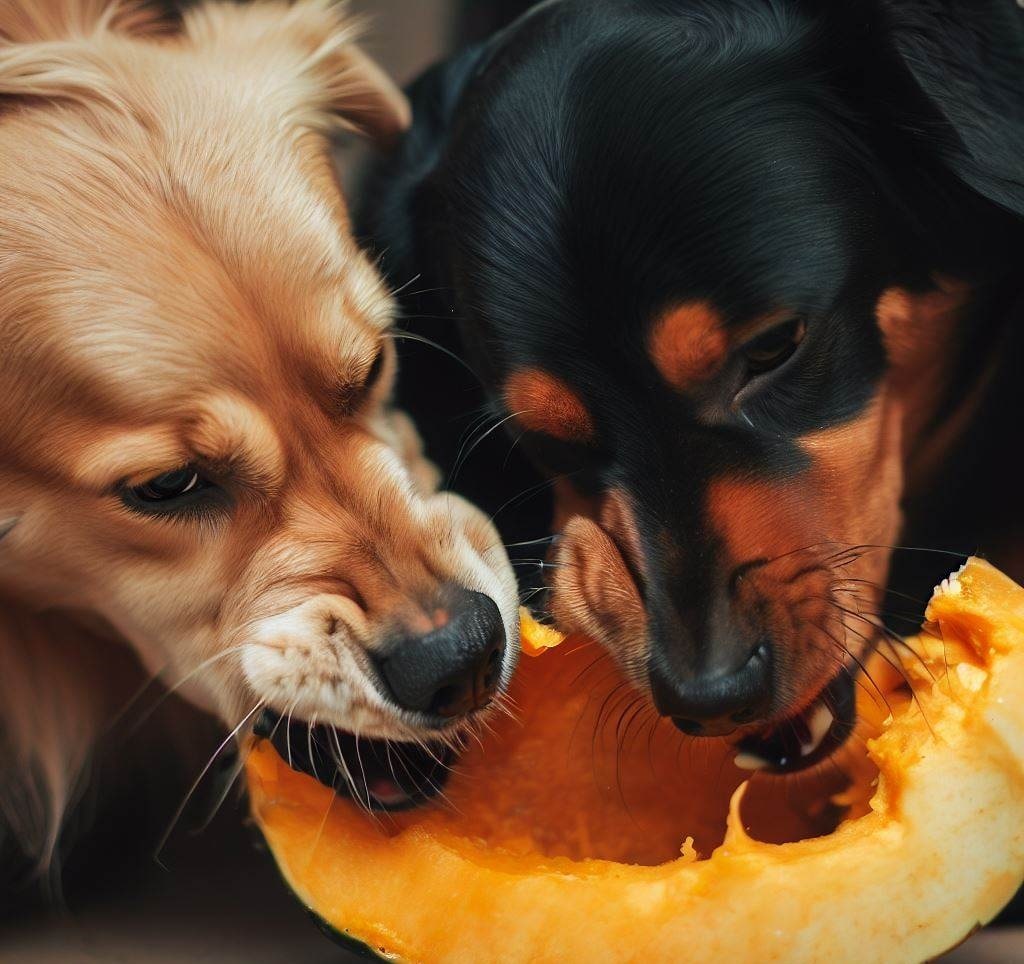
Benefits Of Feeding Squash To Dogs
- Rich in nutrients: Squash is a nutrient-rich vegetable that provides many essential vitamins and minerals that are important for your dog’s health.
- Promotes digestion: Squash is high in fiber, which can help promote healthy digestion and prevent constipation in dogs.
- Low in calories: Squash is low in calories, which can help your dog maintain a healthy weight and reduce the risk of obesity-related health problems.
- Hydration: The high water content in squash can help keep your dog hydrated, especially during the hot summer months.
- Immune system: The vitamins and antioxidants found in squash can help boost your dog’s immune system, keeping them healthy and disease-free.
Risks Of Feeding Squash To Dogs
While squash is generally safe for dogs to eat, there are a few risks that pet owners should be aware of.
- Allergic reactions: Some dogs may be allergic to squash, which can cause symptoms such as vomiting, diarrhea, and itching.
- Digestive issues: If your dog eats too much squash, they may experience digestive issues such as gas, bloating, or diarrhea.
- Seeds: The seeds of some squash varieties can be toxic to dogs, so it is important to remove them before feeding squash to your furry friend.
- Preparation: Squash should be cooked before feeding it to your dog. Raw squash can be difficult to digest and may cause digestive problems.
Types Of Squash Safe For Dogs
There are many types of squash that are safe for dogs to eat, but not all varieties are suitable. Some types of squash can cause digestive issues or contain toxic components that can be harmful to dogs. Here are some safe types of squash that you can feed to your furry friend:
- Butternut Squash: Butternut squash is a popular type of squash that is safe for dogs to eat. It is rich in nutrients, including fiber, vitamins A and C, potassium, and magnesium.
- Acorn Squash: Acorn squash is another safe type of squash that is packed with vitamins and minerals. It is low in calories and fiber, making it an excellent choice for dogs trying to lose weight.
- Spaghetti Squash: Spaghetti squash is a healthy alternative to pasta and a safe option for dogs. It is rich in fiber, vitamins A and C, and potassium.
- Pumpkin: Pumpkin is a type of squash that is safe for dogs to eat as long as it is plain and not mixed with sugar or other ingredients. It is high in fiber and can help promote healthy digestion in dogs.
- Kabocha Squash: Kabocha squash is a type of Japanese pumpkin that is safe for dogs to eat. It is rich in vitamins A and C, fiber, and potassium.
It is important to note that some types of squash, such as zucchini, can cause digestive issues in dogs if fed in large amounts. Therefore, it is best to feed squash to your dog in moderation and monitor their reaction to it.
Additionally, if you are unsure whether a particular type of squash is safe for your dog to eat, consult with your veterinarian before introducing it to their diet.
Types Of Squash Not Safe For Dogs
While many types of squash are safe for dogs to eat, a few varieties are not recommended due to their potentially harmful components. Here are some types of squash that you should avoid feeding to your furry friend:
- Cucurbita Moschata: This type of squash, also known as a “neck pumpkin,” is unsafe for dogs. It contains toxic components called cucurbitacins, which can cause digestive upset, including vomiting and diarrhea.
- Ornamental Squash: Ornamental squash is primarily grown for decorative purposes and is not safe for dogs to eat. They may contain toxic substances that can cause gastrointestinal distress, including nausea, vomiting, and diarrhea.
- Gourds: Gourds are not recommended for dogs as they contain cucurbitacins, which can cause gastrointestinal issues.
- Bitter Gourd: Bitter gourd, also known as bitter melon, is a type of squash that is not safe for dogs. It contains toxic compounds that can cause digestive issues, including diarrhea and vomiting.
It is essential to keep in mind that not all types of squash are safe for dogs, so it is important to consult with your veterinarian before introducing any new foods into your dog’s diet.
How To Feed Squash To Your Dog?
When feeding squash to your dog, it is important to prepare it properly. Here are some tips on how to safely feed squash to your furry friend:
- Cook the squash: Squash should be cooked before feeding it to your dog. You can bake, boil, or steam the squash until it is soft and easy to digest.
- Remove the seeds: Some squash seeds can be toxic to dogs, so it is important to remove them before feeding squash to your furry friend.
- Cut into small pieces: Cut the squash into small, bite-sized pieces to make it easier for your dog to eat and digest.
- Introduce gradually: If your dog has never eaten squash before, introduce it gradually, in small amounts, to prevent digestive upset.
Read More: Can Dogs Eat Chickpeas?
FAQs
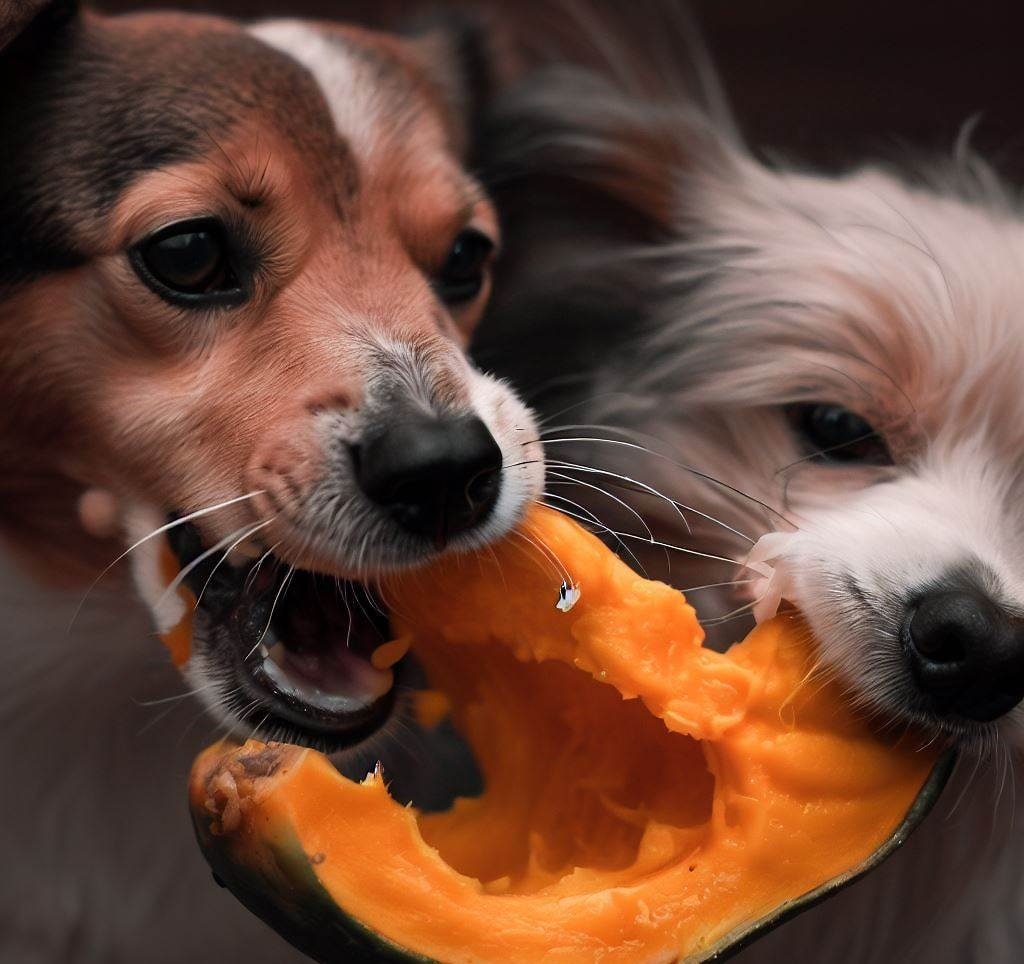
Is squash safe for dogs to eat?
Yes, squash is generally safe for dogs to eat in moderation. However, it’s important to choose the right type of squash and feed it to your dog in small quantities.
What types of squash are safe for dogs to eat?
Safe types of squash for dogs include butternut squash, acorn squash, spaghetti squash, pumpkin, and kabocha squash.
Can dogs eat raw squash?
Dogs can eat raw squash, but it’s recommended to cook it before feeding it to your dog. Cooked squash is easier for dogs to digest and is less likely to cause digestive issues.
Can dogs eat squash seeds?
It’s not recommended to feed your dog squash seeds, as they can cause digestive issues or contain harmful substances.
Is canned squash safe for dogs to eat?
Canned squash is generally safe for dogs to eat, but it’s important to choose plain, unsalted varieties. Be sure to check the label for any added sugars or artificial ingredients.
How much squash can I feed my dog?
Squash should only make up a small portion of your dog’s diet, typically no more than 10% of their daily food intake.
Can dogs with sensitive stomachs eat squash?
Some dogs with sensitive stomachs may have difficulty digesting squash. It’s best to introduce squash slowly and in small quantities to see how your dog reacts.
Can puppies eat squash?
Puppies can eat squash, but it’s important to introduce it slowly and in small quantities. Squash should not make up a large portion of a puppy’s diet.
Can dogs eat squash as a treat?
Yes, squash can be a healthy and nutritious treat for dogs when fed in moderation.
Can squash be added to a dog’s regular diet?
Squash can be added to a dog’s regular diet in small amounts as a source of vitamins and fiber. However, it should not make up a significant portion of their diet.
Can dogs eat squash peel/skin?
It is not recommended to feed your dog squash peel or skin as it can be difficult to digest and may cause gastrointestinal distress.
Can dogs eat squash soup?
It depends on the ingredients in the squash soup. If the soup contains only safe ingredients, such as plain cooked squash, it should be safe for dogs in small amounts. However, soups containing onions, garlic, or other harmful ingredients should be avoided.
Can dogs eat squash seeds?
Feeding your dog squash seeds is not recommended as they can cause digestive issues or contain harmful substances.
Conclusion
Squash is a safe and healthy vegetable for dogs as long as it is prepared properly and fed in moderation. It is rich in nutrients, promotes digestion, is low in calories, and can help keep your dog hydrated.
However, pet owners should be aware of the risks associated with feeding squash to dogs, including allergic reactions, digestive issues, and toxic seeds. If you are unsure whether squash is safe for your dog, consult with your veterinarian before introducing it to their diet.

